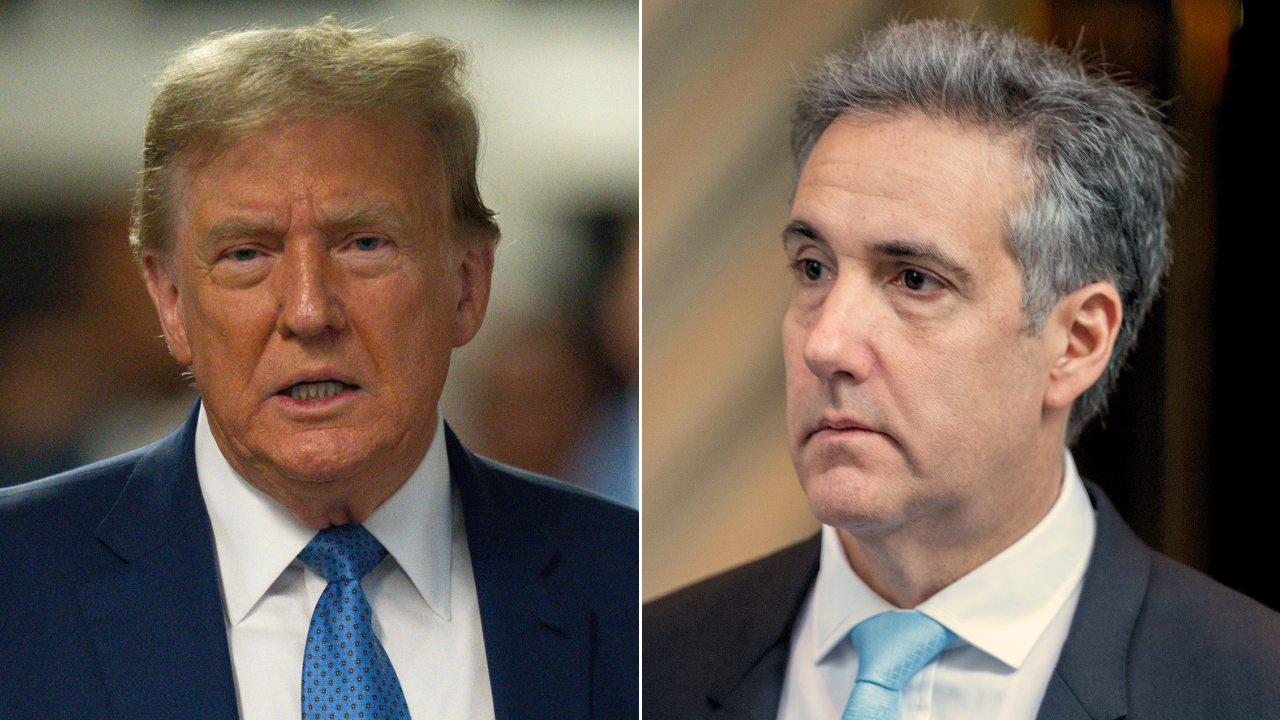Finance
Litigation Finance Limits Advance in Louisiana With New Governor

Two Louisiana bills that put the brakes on the burgeoning litigation finance industry have advanced through initial hurdles, as lawmakers hope to take advantage of a change in governors after last year’s effort fell short with a veto.
One bill requires parties to disclose litigation finance agreements within 60 days after filing a civil action. The state House approved that measure, and it is pending with the Senate Judiciary Committee.
The second bill requires parties to disclose the presence of litigation finance in lawsuits if a foreign entity is the source of funding. That legislation cleared the state Senate and the House Committee on Civil Law and Procedure and needs approval by the full House.
The bills are part of a push in several states to restrict the practice of investors paying for the cost of lawsuits in return for a piece of the proceeds in successful cases. The US Chamber of Commerce is pushing for legislation, saying the $15.2 billion litigation finance industry encourages frivolous lawsuits.
Democratic Governor John Bel Edwards last year vetoed legislation sent to him by the Republican-controlled House and Senate in Louisiana, saying the bill to require disclosure of litigation finance favored large corporations in civil suits. Republican lawmakers, who again hold majorities in both state bodies, hope for a different result this year with a member of their party, Jeff Landry, as the governor.
Republican Representative Emily Chenevert this year has modeled her disclosure bill (HB336) on the one Edwards vetoed. It allows parties to redact the dollar amount financed, makes the contracts subject to discovery and bars funders from directing or influencing litigation.
“The appetite was there already within the legislature and so now it’s like, let’s attempt this and let’s see with a new House and some new senators what could happen,” Chenevert said in an interview. “Let’s do this again, give it another shot.”
Chenevert’s bill was deferred in the Senate Judiciary Committee after the chairman announced that there were 56 proponents and 67 opponents in attendance in line to speak at a hearing. A new date has not yet been scheduled.
The second bill (SB355), introduced by the state Senate majority leader, Jeremy P. Stine, requires disclosure of litigation financed by governments in foreign countries of concern to the state Attorney General, such as China, Russia and Iran. It mirrors legislation brought forward at the federal level last year by Senator John Kennedy (R-La.) and House Speaker Mike Johnson (R-La.).
Other bills
Litigation finance bills have faced mixed results in state legislatures. Earlier this year, Indiana enacted legislation into law that blocks foreign entities from funding lawsuits.
West Virginia updated an existing law to include litigation finance. The statute requires investors to provide a copy of contracts to consumers and does not allow firms to assign or securitize a contract to another party, among other regulations.
In Florida, a bill requiring disclosure of litigation finance agreements and of foreign investments stalled in the House. A bill in Kansas is pending and would allow discovery of litigation funding agreements.
The US Chamber backs the state efforts and earlier this month warned of the risks of litigation finance.
With outside funding, “plaintiffs face minimal risk in bringing forward claims, legitimate or not,” Matt Webb, a senior vice president for the Chamber’s Institute for Legal Reform, wrote in a post. “This dynamic often pressures businesses to settle out of court to avoid the costs and uncertainties of protracted litigation, even when the claims against them lack merit.”
In Louisiana, the Chamber backs Chenevert’s bill though calls Stine’s proposal “under inclusive.” The Stine proposal “addresses foreign funding only, but there are plenty of ways frankly that foreign dollars could be put into US investment vehicles and influences litigation,” said Nathan Morris, a vice president at the Chamber’s legal reform institute.
Litigation finance has defenders in state houses.
“The Chamber’s intentionally approaching states where there is not litigation financing, such as Louisiana, in an attempt to pass a bill that can then be used as a domino in support of national regulation,” said Dai Wai Chin Feman, managing director at funder Parabellum Capital.
He spoke out against Chenevert’s bill as a representative of the industry’s trade group, the International Legal Finance Association, but described Stine’s bill as “acceptable to our industry.”

Finance
What are the best ways to finance excellent hotel studies? – Part 2

While the hospitality industry is renowned for being a veritable social ladder, where someone without a degree can start out as a dishwasher before working their way up to become a hotel manager, education remains the quickest route to positions of great responsibility. Future talents are turning to the best hotel schools to train and join this rich industry. However, the cost of excellent studies can be daunting for many students. This is a financial barrier that schools, authorities and even the students themselves are trying to overcome through various financing solutions.
To (re)discover part 1 of this analysis, which looks at the cost of student life in 2024, click here. A wide range of funding options Grants, funding and support While such studies may seem out of reach for many students because of their cost, there are many ways of financing them. Whether it’s the…
Finance
Rana Abbasova, Adams aide whose home was raided, is cooperating with feds’ campaign finance probe

An aide to Mayor Adams whose home was raided amid an FBI probe into his 2021 campaign is cooperating with federal authorities, a source with knowledge of the matter said Monday.
The aide, Rana Abbasova, is one of several people whose residence was raided as the feds probe allegations that the Turkish government funneled illegal cash into Adams’ campaign through straw donors.
The mayor has not been accused of any wrongdoing and strongly denies any suggestion of impropriety in connection with the investigation.
It’s unclear what Abbasova may have discussed with the feds, though her cooperation pertains to the general allegation of illegal Turkish government-financed contributions to the mayor’s campaign, according to The New York Times, which first reported her cooperation. Her lawyer Rachel Maimin declined to comment.
Brendan McGuire, the mayor’s former chief counsel at City Hall who now represents him and his 2021 campaign in the FBI investigation, confirmed Abbasova’s cooperation, but said it’s “not a new or meaningful development.”
Abbasova, the director of protocol in Adams’ International Affairs Office and the mayor’s unofficial liaison to the local Turkish community, was put on unpaid leave days after her home was raided in November, according to two sources with knowledge of the matter. She remains on unpaid leave, and her position at City Hall has not been filled, they added.
The sources spoke on condition of anonymity due to the sensitive nature of the Adams campaign probe, which burst into the headlines when the home of the mayor’s chief campaign fundraiser, Brianna Suggs, was raided in November. Days later, Adams had his own electronic devices seized by the feds.
Abbasova received three tickets in New Jersey in January for offenses linked to driving a for-hire vehicle, the Daily News previously reported.
While she’s been on unpaid leave, another Adams aide targeted by the feds in a separate matter went on paid sick leave after her Bronx homes were raided in February. That aide, Winnie Greco, has since returned to work at City Hall, receiving a raise earlier this month.
McGuire noted the mayor’s administration reported to investigators late last year that Abbasova had engaged in “improper conduct.” Sources confirmed at the time that the conduct in question was Abbasova instructing other Adams staffers to delete text messages they’d exchanged with her.
“It is our understanding that Ms. Abbasova has been talking to investigators since her improper conduct was reported by the administration in November,” McGuire said in a Monday night statement.
Finance
Trends in residential solar finance, equipment and maintenance

Solar informational site SolarReviews released its annual survey, sharing results gathered from a group mostly represented by residential solar installers, as well as commercial installers, equipment providers, and utility-scale installers. SolarReviews operates a Solar Calculator that enables prospective customers to have a snapshot of the benefits of adding solar to their roof based on customized data for their area.
Finance
With higher financing costs industry-wide, 54% of U.S. installers said customers were less likely to take a solar loan over the past year, while cash deals are up. About 49% of sales reported were cash deals, while 41% were loans. HELOC, PACE loans, power purchase agreements, and leases combined for 10% of reported solar sales.
The top financing providers used were Credithuman (15%), Mosaic (14%), Sunlight Financial (9%),Dividend (8%), and Clean Energy Credit Union (8%).
Typical loans for loaned systems varied widely depending on whether dealer fees were assigned. Average terms are seen below.
Heightened cost of finance has pressed the residential solar industry. About half (49%) of installers said demand went down in 2023 versus 2022.
In California, where rates paid for exporting solar production to the grid were slashed by about 80%, about 69% of installers reported lower sales in California in 2023 versus 2022. However, 68% of installers reported including battery energy storage with their solar installation, about double the national average. Installers report a median payback period of eight years for solar systems with a battery, while standalone solar systems have a longer median payback period of about 10 years.
California was not the only state to cut rates for solar exports, a process known as net metering. Georgia, Arizona, Kansas, Arkansas, and Wisconsin all noted an increase in installed systems not tied to a net metering agreement.
Top products
As for the top equipment brands in residential solar, SolarReviews surveyed installers based on five criteria of performance and quality, brand name reputation, product warranty, pricing, and product availability from distributors. Based on the five criteria, SolarReviews listed Qcells as the top performing panel brand.
Installers said the top five most-used panels were Qcells (53%), REC (41%), Canadian Solar (35%), Mission Solar (29%), and JinkoSolar (20%). About 19% of solar installers offer one panel brand, while the majority provide alternative options to meet the needs of their customers.
For inverters, the top five most-used were Enphase (62%), SolarEdge (43%), SMA (23%), Sol-Ark (21%), and Tesla (21%). Tesla made a notable leap up into the top five, gaining a larger market share than Fronius and Generac.
Enphase was also listed as the most commonly used battery energy storage provider, offered by 46% of installers. This was followed by Tesla (42%), SolarEdge (35%), FranklinWH (29%), and Fortress Power (18%). A sizeable market share was also held by SunPower, Generac, LG Energy Solution, and HomeGrid.

Maintenance
Given that solar is often a 25-year investment, post-installation services are a critical feature in a solar agreement. About 96% of installers have access to system monitoring, while 63% said they proactively check their customers’ installations at least once per quarter to ensure they are working.
The most common reasons for service, in order, were inverter hardware failures and replacement, inverter software and setup issues, battery software updates, communications and monitoring fixes, roof leaks, battery hardware failure or replacement, wiring issues, and broken or underperforming panels.
“Fortunately, when issues do occur, they are often covered by some type of warranty, leaving only 15% of cases where the customer is responsible for repair costs,” said SolarReviews.

Outlook
The residential solar industry looks to recover from a rocky 2023, where growth was slowed by high finance costs and unfavorable policy changes like the reduction of net metering rates.
“Some solar businesses are still reeling from the events of 2023. 22% of solar businesses say they have concerns that make them unsure whether they can stay in business in the coming six months,” said SolarReviews.
Despite this uncertainty, residential solar installers appear to have a good outlook for 2024. About 54% of surveyed installers said they expect to sell more solar in 2024, and an additional 23% said they think they will be able to maintain the same level of business next year.
Notably, surveyed installers listed pv magazine as the top trusted media platform for solar news and analysis, with 52% responding we are the preferred source. The marks the second year in a row as the most-trusted media source. We thank you for your continued readership.
This content is protected by copyright and may not be reused. If you want to cooperate with us and would like to reuse some of our content, please contact: editors@pv-magazine.com.
-

 News1 week ago
News1 week agoSkeletal remains found almost 40 years ago identified as woman who disappeared in 1968
-

 Movie Reviews1 week ago
Movie Reviews1 week ago“Kingdom of the Planet of the Apes”: Disney's New Kingdom is Far From Magical (Movie Review)
-

 World1 week ago
World1 week agoIndia Lok Sabha election 2024 Phase 4: Who votes and what’s at stake?
-

 World1 week ago
World1 week agoUkraine’s military chief admits ‘difficult situation’ in Kharkiv region
-

 World1 week ago
World1 week agoCatalans vote in crucial regional election for the separatist movement
-

 Politics1 week ago
Politics1 week agoNorth Dakota gov, former presidential candidate Doug Burgum front and center at Trump New Jersey rally
-

 Movie Reviews1 week ago
Movie Reviews1 week agoAavesham Movie Review
-

 News1 week ago
News1 week agoTrump, Reciting Songs And Praising Cannibals, Draws Yawns And Raises Eyebrows













